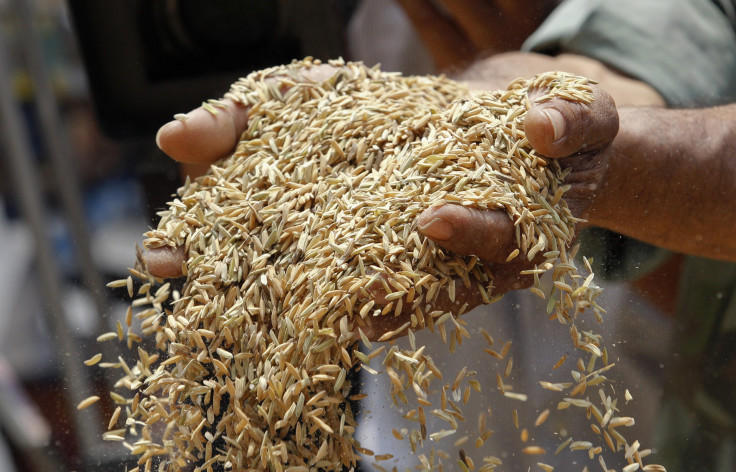Amid Thai Water Shortages, Rice Farmers Defy Orders And Plant Crops

The Thai government wants rice growers to delay planting their crops because of severe nationwide water shortages, but a leader of central plain rice farmers said Tuesday that most would defy the order because any delay would risk the loss of the entire harvest, reports the Bangkok Post. As an El Niño pattern, which brings heat and drought to Southeast Asia, begins in the Pacific Ocean, rice paddies are quickly losing water.
Khwanchai Mahachuenjai, deputy head of the Farmers Network of the Central Region, said few growers would follow the Royal Irrigation Department's orders to delay planting their main rice crop until July. A general drought in the region caused by El Niño is expected to cause the price of rice, the food staple for half the world's population, to surge by 40 percent, the Bangkok Post previously reported.
"This time farmers will go ahead, whether they must find water themselves or just hope for rain," Mahachuenjai told the Bangkok Post. "They will take their chances. If they do not, then they will have no income this year because later this year water coming downstream from the north will inundate their paddy fields and rice cannot grow then."
Agriculture and Cooperatives Minister Pitipong Phuengboon Na Ayudhaya has said existing reservoirs would be able to water only the 3.4 million rai (about 1.34 million acres) of paddies already planted, according to the Bangkok Post. The government is ordering the other 4 million rai to be planted in late July, when normal levels of rainfall are supposed to return.
Wichien Phuanglamjiak, president of the Thai Agriculturist Association, demanded Tuesday that the government provide rice growers compensation for the delay from water shortages, along with a three-year debt moratorium.
In 2013, Thailand's government began buying domestic rice at an above-market rate in an attempt to cut exports and control the price of rice in the global market. In order to boost farmers' income, the government started stockpiling what is now 14 million tons of rice, which it expected to sell internationally at a higher price, according to the Wall Street Journal.
The strategy backfired. India and Vietnam began selling more rice at lower prices, leaving Thailand with a huge debt and no easy way to sell the rice. With Thailand now facing a drought that could cause a rice shortage, the government's massive stores have begun to rot, according to a previous article by the Bangkok Post.
© Copyright IBTimes 2024. All rights reserved.












